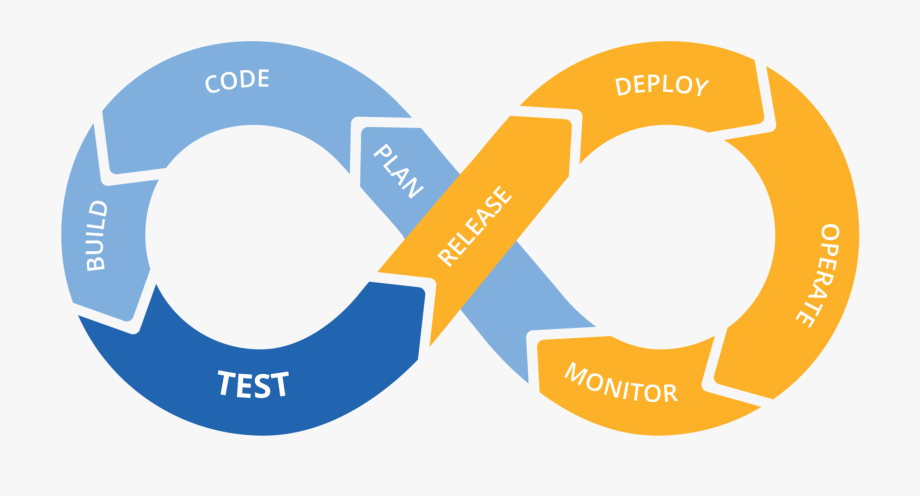
Developing well-functional web applications could be time-consuming and requires lots of planning, but having the right development tools in your arsenal can improve your web development workflow and speed up some parts of your processes whether you are working in a team or you are working alone. Here is a list of tools that every developer should get familiar with. Let us get started
- Git
- CI/CD
- Postman
- Trello
1. Git

According to Wikipedia
Git is a distributed version-control system for tracking changes in source code during software development. It is designed for coordinating work among programmers, but it can be used to track changes in any set of files. Its goals include speed, data integrity, and support for distributed, non-linear workflows.
Mastering how to use Git improves your development workflow. Here are some reasons why git is important
- It is easy to revert your mistakes. Git has a feature called commit. Whenever you commit your code project, Git saves a snapshot of your project containing the necessary metadata such as (your name, timestamp, etc). It is synonymous to a save history with the power to revert back or view your code history
- With the power of Git Branches, you and your team can work on simultaneously on a project without any hiccups.
- As a solo developer working on a beautiful project and you want to implement a new feature that can/might break a lot of things in your project, rather than duplicating your project to isolate, build and test the feature which is time-consuming, Git gives you the power to branch out of your main branch to implement your new feature and ensure everything is tested and works well before merging it back into the main branch.
Note: it is important you always have a copy of your git repositories online. You can use one of the reputable git repositories online such as Github, Bitbucket, Gitlab.
2. CI/CD

CI/CD stands for Continuous Integration and Continuous Deployment which is a process that allows developers to deliver code changes frequently and reliable
Continuous Integration (CI) is a development practice where developers deliver code into a repository frequently, preferably several times a day. Each integration is then verified by an automated build and tests to ensure everything is working fine. The important benefit of integrating regularly is that it helps you detect errors in your code quickly and also locate them more easily because each change introduced into the code repository is small, detecting the specific change that introduced the errors.
Continuous Delivery is an extension of Continuous Integration which is the process of keeping your codes deployable to the production at any point in time
Continuous Deployment is the development practice of deploying your codes automatically to the production server after all build phases and tests have been passed.
Advantages of CI/CD in your project
- It ensures that you have less bug in your production server
- Releasing your product to the production server becomes easier
- Releases are less risky and easier to fix in case of any problem as you deploy small batches of changes.
- You can release your product more often thus accelerating the feedback loop with your customers.
There are many CI/CD tools out there that you can use in your projects such as Buddy.works, Travis Ci, Circle Ci, Bitbucket Pipelines, etc.
3. Postman

Postman is a Google Chrome app for interacting and testing APIs. It saves you times testing your API calls by presenting you with a friendly GUI for constructing requests and reading responses.
Advantages of using postman
- Accessibility – To use Postman, one would just need to log-in to their own accounts making it easy to access files anytime, anywhere as long as a Postman application is installed on the computer.
- Use of Collections – It lets users create collections for their API calls. Each collection can create subfolders and multiple requests. This helps in organizing your test suites.
- Collaboration – Collections and environments can be imported or exported making it easy to share files. A direct link can also be used to share collections.
- Creating Environments – Having multiple environments aids in less repetition of tests as one can use the same collection but for a different environment. This is where parameterization will take place which we will discuss in further lessons.
- Creation of Tests – Test checkpoints such as verifying for successful HTTP response status can be added to each API call which helps ensure test coverage.
4. Trello

Trello is a cloud-based project management app designed to help individuals and teams collaborate better and keep their projects organized.
Advantages of using Trello.
It helps you…
- plan your project
- track your project tasks
- keep track of who is doing what in a group
- to see all of the working parts of a project together on one page (or multiple pages)
Learning how to use these tools discussed in today’s article effectively will definitely improve your deployment workflow, which in turn saves you cost and time, and make your work easier while working on any web development project.
Cheers !!!





